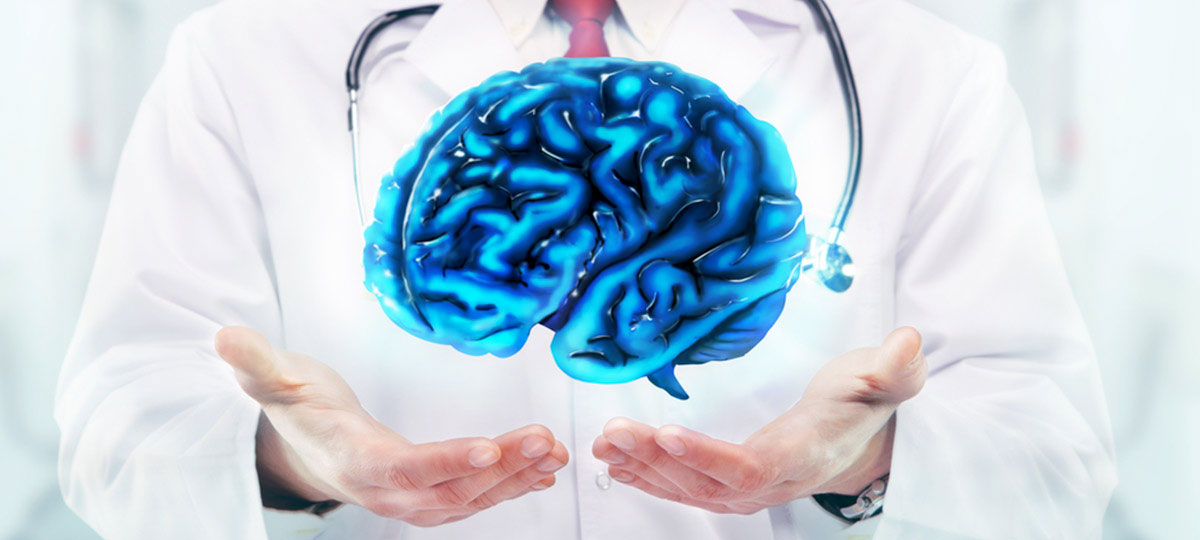
Astaxanthin: A Natural Powerhouse for Brain Health and Cognitive Function
In recent years the health benefits of Astaxanthin have become worthy of miracles. This formidable algae has proven to be a powerful supplement with countless benefits and is being termed a “super-supplement” by both doctors and those who take it. Among its many potential benefits, astaxanthin has been shown to play a significant role in promoting brain health and cognitive function. In this article, we will delve into the science behind astaxanthin's effects on the brain, exploring its antioxidant, anti-inflammatory, and neuroprotective properties.
What is Astaxanthin?
Astaxanthin in a natural pink red pigment classified as a carotenoid. It is excreted by certain algae, acting as the algae’s defence mechanism. It is also the same substance that causes the pink colouring often found in salmon, shrimp and other seafood and can be take orally or applied to the skin.
Astaxanthin for Brain Health
In recent years numerous studies have proven the benefits of Astaxanthin for brain health. Tests have show patients taking the powerful antioxidant have had improved memory and a greater ability to focus, superb for studying. Furthermore, Astaxanthin has been proven to delay mental decline and it is here that the natural substance has shown its most significant brain health benefits.
Astaxanthin is the more powerful cousin of beta-carotene and reduces the compounds (phospholipid hydroperoxidases) known to accumulate in the red blood cells of those suffering with dementia. The reaction to Astaxanthin is such that many scientists and observers believe that the miracle supplement could one day prevent dementia and even go as far as reducing the symptoms of or preventing Alzheimer’s.
Brain Inflammation
Everyone is looking to improve brain health and “brain food” is becoming popular. Astaxanthin is a natural, fat soluble nutrient and is one of the few that crosses the blood-brain barrier making not only interesting but potentially very powerful. Where brain inflammation is a problem, as a result of trauma, for example, Astaxanthin is one of the most powerful anti-inflammatories known because the nutrient can enter the brain and reduce inflammation naturally and quickly.
Stroke Recovery
In recent years Astaxanthin supplements have used to help patients recover from strokes. The super-nutrient has been shown to aid in the brain’s healing process and has been proven to reduce brain damage following a stroke.
Miracle Drug
Astaxanthin is termed a miracle drug by many but this is perhaps a little ambitious is reality. The nutrient, like all other nutrients and supplements is far from being a cure for brain disorders of any kind such as Parkinson’s or Alzheimer’s. It is however a powerful supplement for reducing or alleviating some of the symptoms of slowing down the progressive nature of many brain related disorders. For this reason, before taking astaxanthin and hoping for a cure it is worthwhile seeking professional medical advice. For those looking to keep their brain healthy, stay alert and focused Astaxanthin can be purchased from most pharmacies and heath stores.
Antioxidant Properties of Astaxanthin
Astaxanthin is an exceptionally potent antioxidant, capable of neutralizing free radicals that can cause oxidative damage to cells. The brain is particularly vulnerable to oxidative stress due to its high metabolic activity and lipid content. Free radicals can damage brain cells, which can contribute to cognitive decline and the development of neurodegenerative diseases.
Astaxanthin has a unique molecular structure that allows it to span the entire cell membrane, providing comprehensive protection against oxidative damage. Additionally, astaxanthin's antioxidant capacity has been found to be significantly stronger than other well-known antioxidants, such as vitamin C, vitamin E, and beta-carotene.
Anti-inflammatory Effects
Chronic inflammation is a contributing factor to various neurological disorders, including Alzheimer's disease, Parkinson's disease, and multiple sclerosis. Astaxanthin has been shown to exhibit strong anti-inflammatory properties by inhibiting the production of pro-inflammatory cytokines and suppressing the activation of key inflammatory pathways, such as NF-kB.
By reducing inflammation in the brain, astaxanthin may help prevent or delay the onset of neurodegenerative diseases and support overall brain health.
Neuroprotection and Blood-Brain Barrier Permeability
One of astaxanthin's most remarkable features is its ability to cross the blood-brain barrier, which separates the bloodstream from the brain's extracellular fluid. This allows astaxanthin to provide direct protection to brain cells and support overall brain health.
Astaxanthin's neuroprotective properties have been demonstrated in various in vitro and in vivo studies. It has been shown to protect neurons from oxidative damage, reduce neuronal cell death, and prevent the formation of toxic protein aggregates that contribute to neurodegenerative diseases.
Supports Cognitive Function
Research suggests that astaxanthin may have a positive impact on cognitive function, including memory, learning, and attention. In a randomized, double-blind, placebo-controlled study, healthy adults who received astaxanthin supplementation for 12 weeks demonstrated significant improvements in cognitive performance compared to the placebo group.
Animal studies have also demonstrated that astaxanthin supplementation can improve learning and memory in rodents, suggesting its potential to support cognitive function in humans.
Reduces Oxidative Stress
Oxidative stress is a major contributor to the development of various neurological disorders, including Alzheimer's disease, Parkinson's disease, and stroke. By reducing oxidative stress in the brain, astaxanthin may help prevent or delay the onset of these conditions.
In a study on mice, astaxanthin was found to reduce the levels of reactive oxygen species (ROS) in the brain, indicating its potential to counteract oxidative stress and protect brain cells from damage.
Potential Benefits for Alzheimer's Disease
Alzheimer's disease is a progressive neurodegenerative disorder characterized by cognitive decline, memory loss, and the accumulation of beta-amyloid plaques in the brain. Research indicates that astaxanthin may help prevent or delay the onset of Alzheimer's disease through several mechanisms:
- Reducing inflammation: Astaxanthin's anti-inflammatory properties may help counteract the neuroinflammation associated with Alzheimer's disease
- Reducing oxidative stress: Astaxanthin's potent antioxidant properties can help protect brain cells from oxidative damage, a contributing factor to Alzheimer's disease.
- Inhibiting beta-amyloid plaque formation: Astaxanthin has been shown to inhibit the aggregation of beta-amyloid peptides, which form toxic plaques in the brains of Alzheimer's patients.
Promotes Neurogenesis
Astaxanthin may promote neurogenesis, the process of generating new neurons from neural stem cells. This process is crucial for maintaining brain health and cognitive function, as it allows the brain to adapt, learn, and recover from injury. In animal studies, astaxanthin has been shown to stimulate the proliferation of neural stem cells and promote the formation of new neurons.
Supports Brain Blood Flow
Astaxanthin can improve cerebral blood flow, ensuring that the brain receives adequate oxygen and nutrients, which are essential for optimal brain function. In a study on healthy adults, supplementation with astaxanthin for four weeks led to a significant increase in cerebral blood flow. This suggests that astaxanthin may help prevent cognitive decline associated with reduced blood flow to the brain, such as in the case of aging or vascular dementia.
Potential Treatment for Parkinson's Disease
Parkinson's disease is a neurodegenerative disorder characterized by the progressive loss of dopaminergic neurons in the substantia nigra region of the brain. This leads to motor symptoms such as tremors, stiffness, and bradykinesia. Research suggests that astaxanthin may have therapeutic potential for Parkinson's disease by protecting dopaminergic neurons from oxidative stress and reducing neuroinflammation.
In animal models of Parkinson's disease, astaxanthin has been shown to reduce the loss of dopaminergic neurons and improve motor function. Additionally, astaxanthin has been found to protect against the neurotoxic effects of the pesticide rotenone, which is known to induce Parkinson's-like symptoms in experimental models.
Supports Mental Health
Astaxanthin has been shown to exhibit antidepressant-like effects in animal studies, indicating its potential to support overall mental health and well-being. In a study on mice, astaxanthin supplementation led to a reduction in depressive-like behaviors and an increase in brain-derived neurotrophic factor (BDNF) levels. BDNF is a protein that plays a crucial role in the survival, growth, and maintenance of neurons and is often reduced in individuals with depression.
Conclusion
Astaxanthin's antioxidant, anti-inflammatory, and neuroprotective properties make it a promising natural compound for promoting brain health and cognitive function. Research suggests that astaxanthin may help prevent or delay the onset of neurodegenerative diseases, enhance cognitive function, and support overall mental health. With the growing interest in natural approaches to health and wellness, astaxanthin has the potential to become a key player in the field of brain health and cognitive support.
Summary
1. Antioxidant Properties
Astaxanthin is a potent antioxidant that neutralizes free radicals, which can damage brain cells and contribute to cognitive decline.
2. Anti-inflammatory Effects
Astaxanthin has strong anti-inflammatory properties, helping to reduce inflammation in the brain, which can contribute to neurodegenerative diseases.
3. Neuroprotection
Astaxanthin can cross the blood-brain barrier, allowing it to provide direct protection to brain cells and support overall brain health.
4. Supports Cognitive Function
Research suggests that astaxanthin may enhance cognitive function, including memory, learning, and attention.
5. Reduces Oxidative Stress
Astaxanthin helps to reduce oxidative stress in the brain, which is linked to the development of various neurological disorders.
6. May Prevent or Delay Alzheimer's Disease
Studies indicate that astaxanthin may help prevent or delay the onset of Alzheimer's disease by reducing inflammation, oxidative stress, and beta-amyloid plaque accumulation in the brain.
7. Promotes Neurogenesis
Astaxanthin may promote neurogenesis, the process of generating new neurons, which is essential for maintaining brain health and cognitive function.
8. Supports Brain Blood Flow
Astaxanthin can improve cerebral blood flow, ensuring that the brain receives adequate oxygen and nutrients, which are crucial for optimal brain function.
9. Potential Treatment for Parkinson's Disease
Research suggests that astaxanthin may have therapeutic potential for Parkinson's disease by protecting dopaminergic neurons and reducing neuroinflammation.
10. Supports Mental Health
Astaxanthin has been shown to exhibit antidepressant-like effects in animal studies, indicating its potential to support overall mental health and well-being.










My husband was diagnosed of Parkinsons disease 2 years ago, when he was 49. He had a stooped posture, tremors, right arm does not move and also a pulsating feeling in his body. He was placed on Senemet for 8 months and then Siferol was introduced and replaced the Senemet, during this time span he was also diagnosed with dementia. He started having hallucinations, lost touch with reality. Suspecting it was the medication I took him off the Siferol (with the doctor’s knowledge) and started him on PD natural herbal formula we ordered from AKANNI HERBAL CENTRE, his symptoms totally declined over a 3 weeks use of the AKANNI HERBAL Parkinsons disease natural herbal formula. He is now almost 51 and doing very well, the disease is totally reversed! (Visit w w w.aknniherbscentre .com)